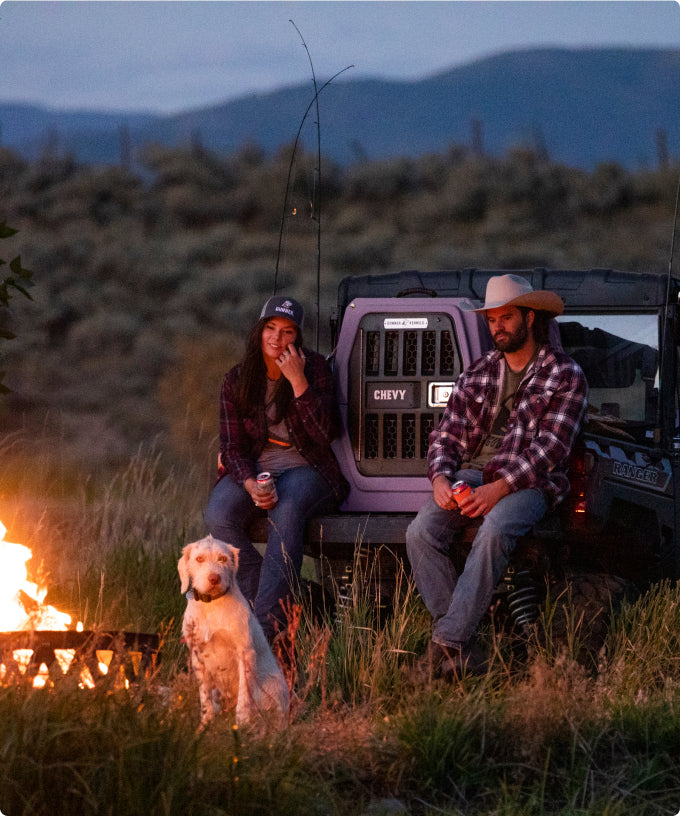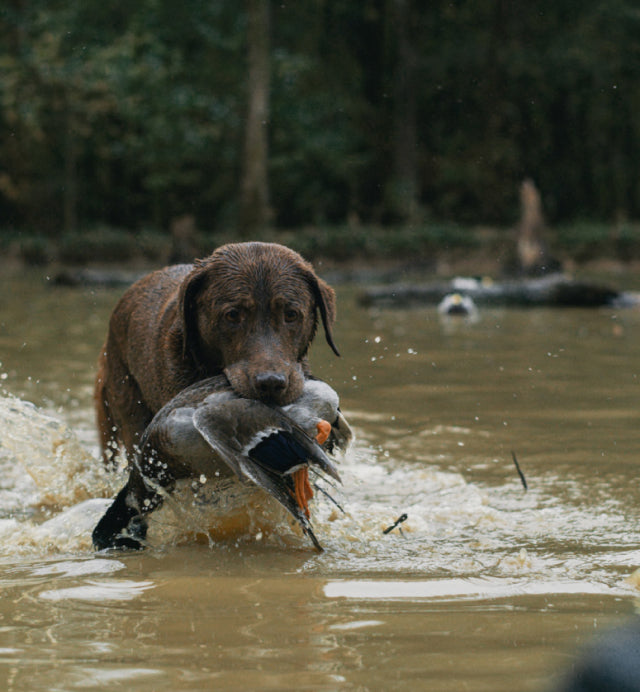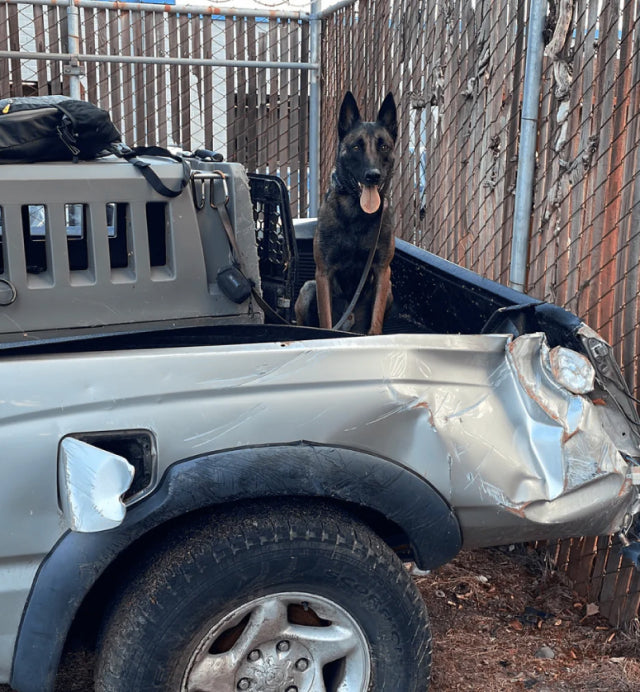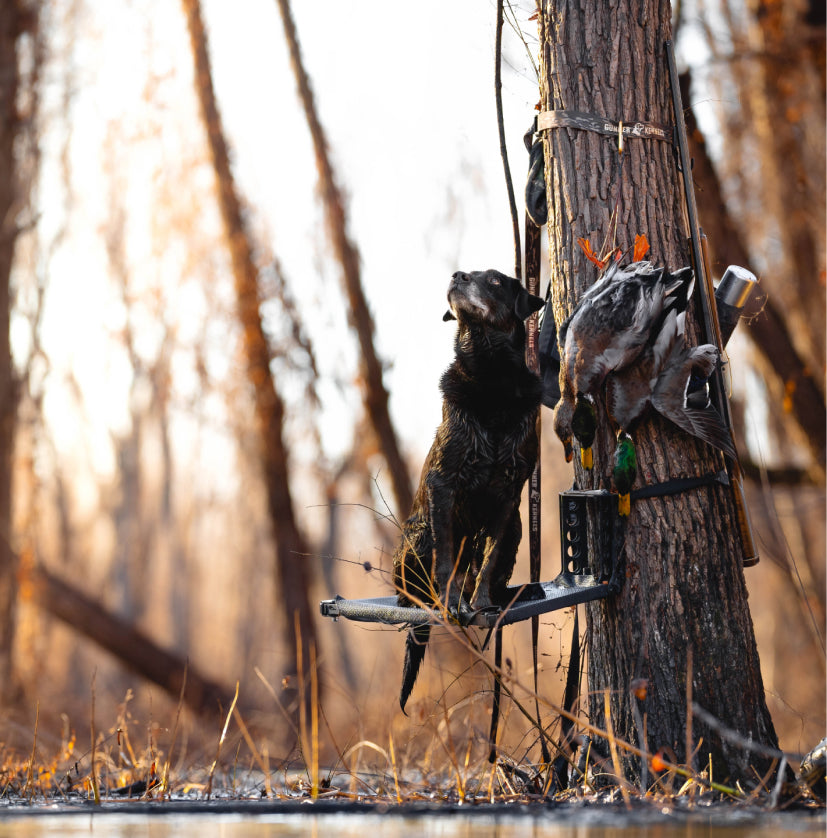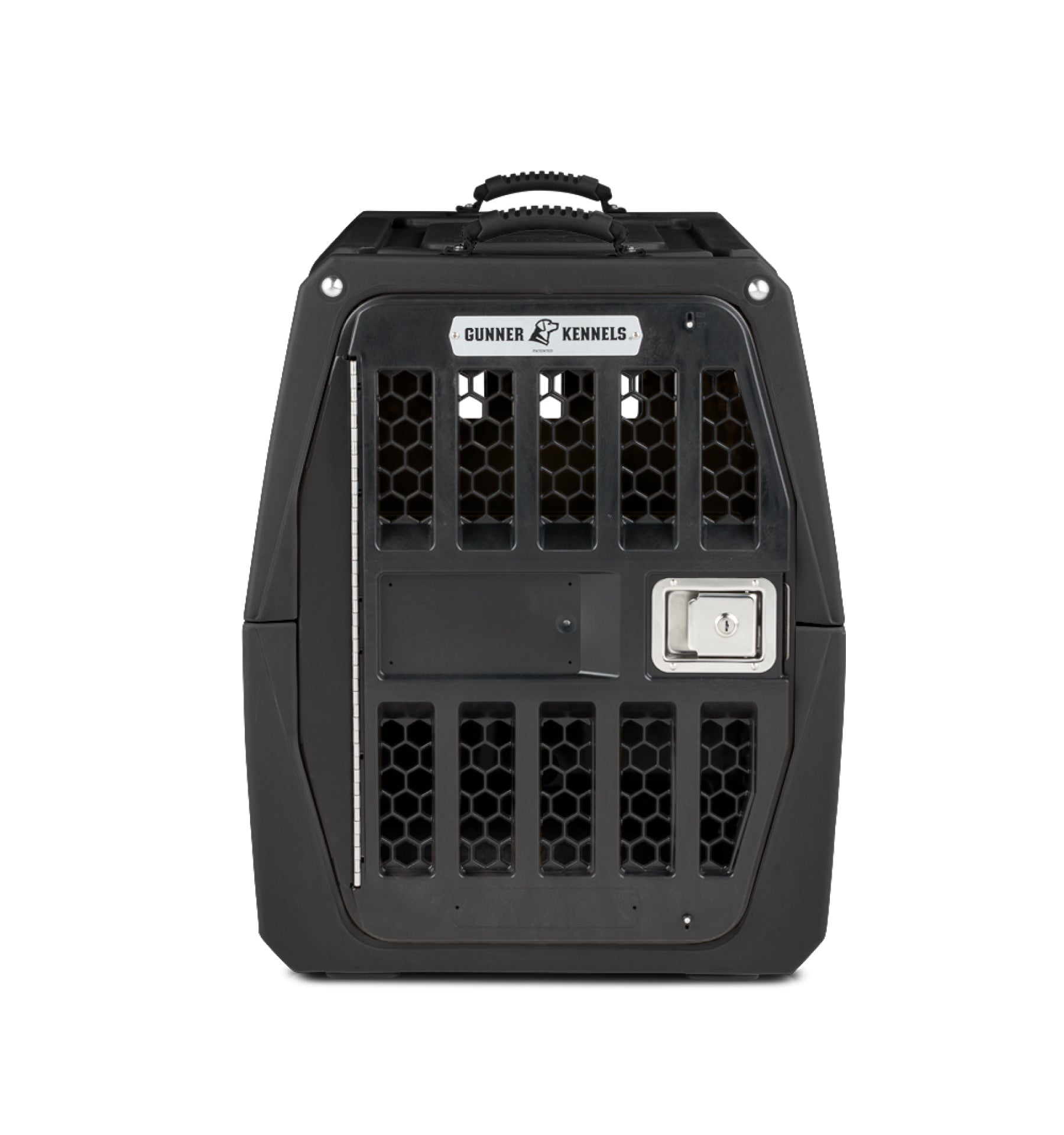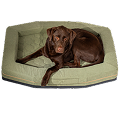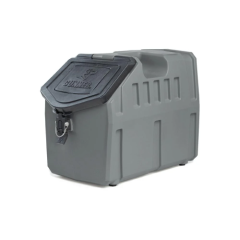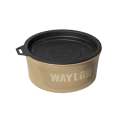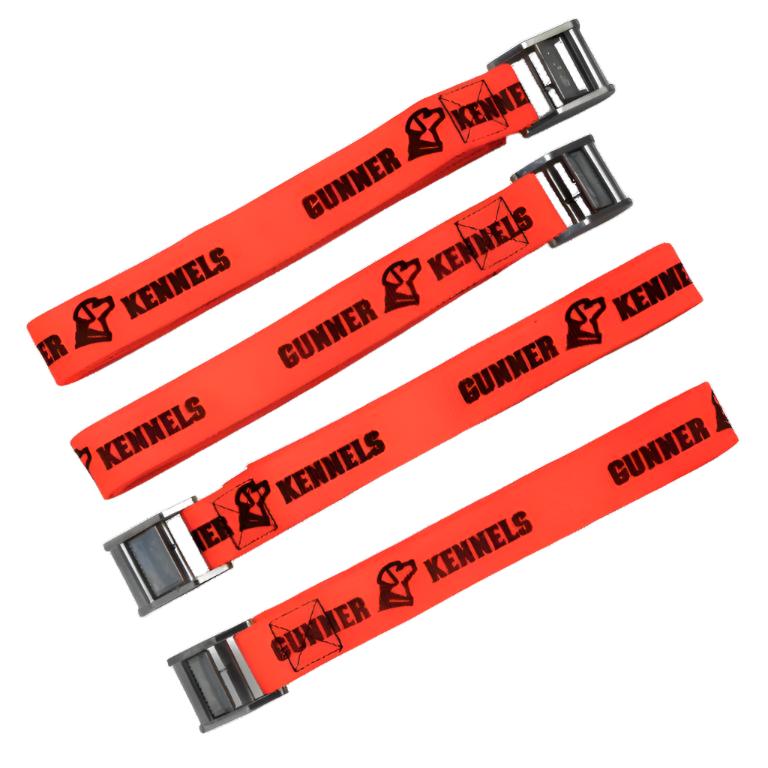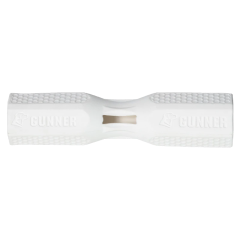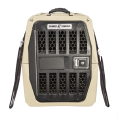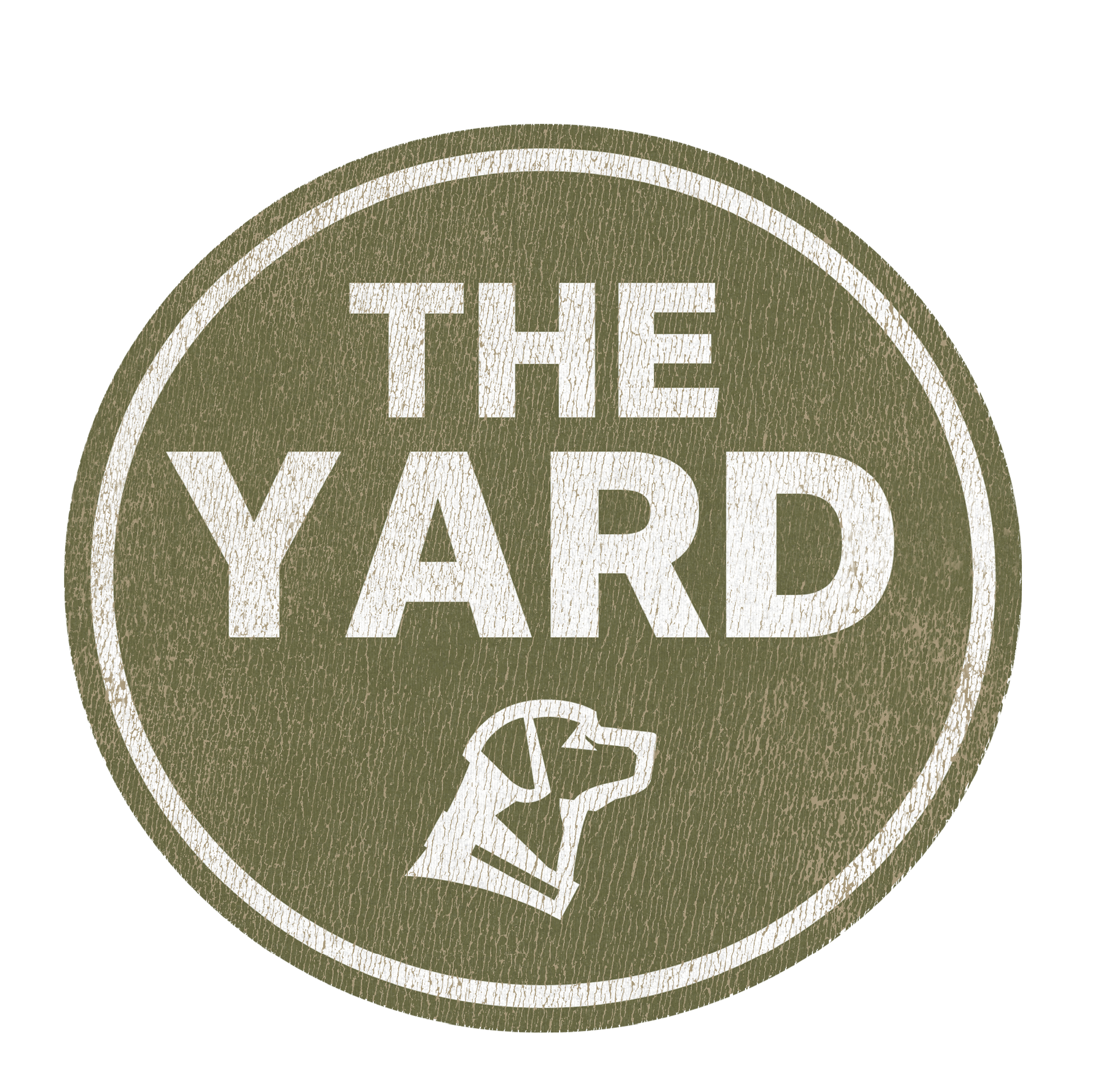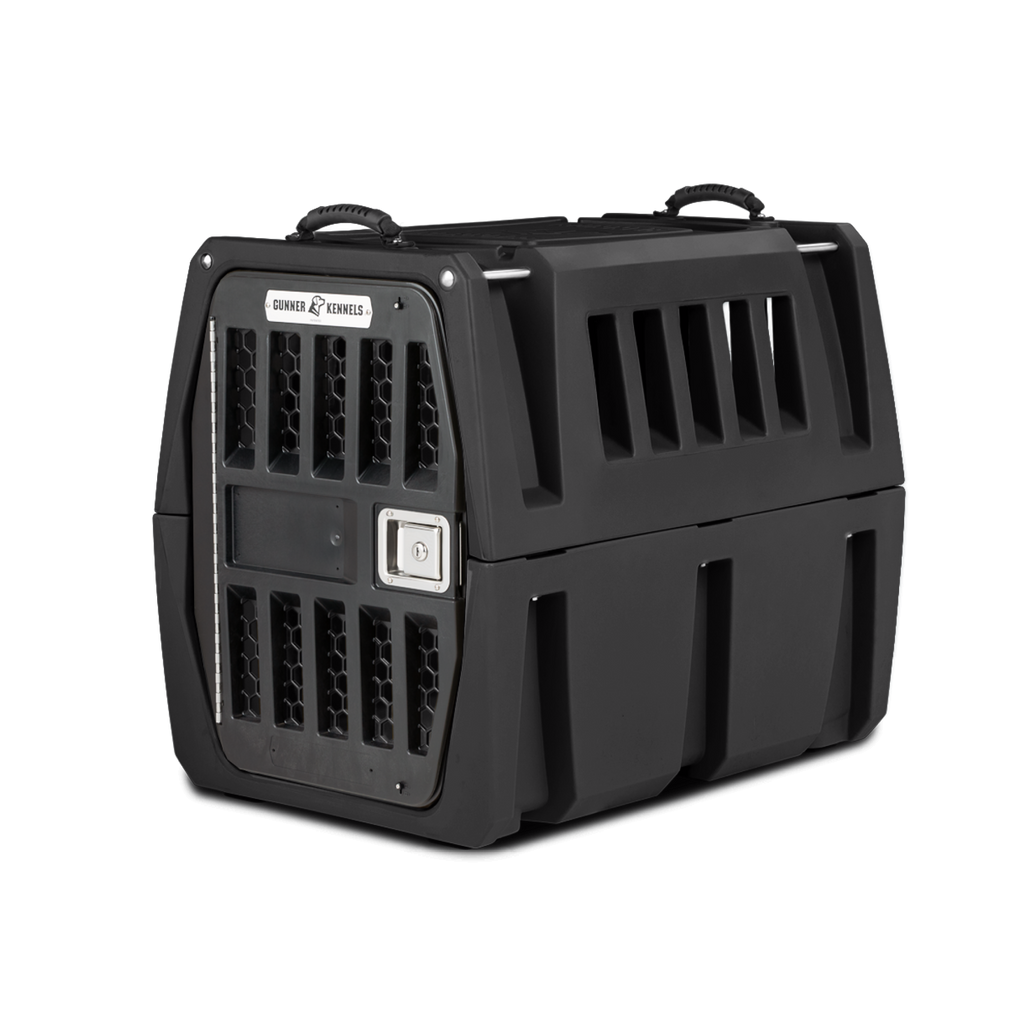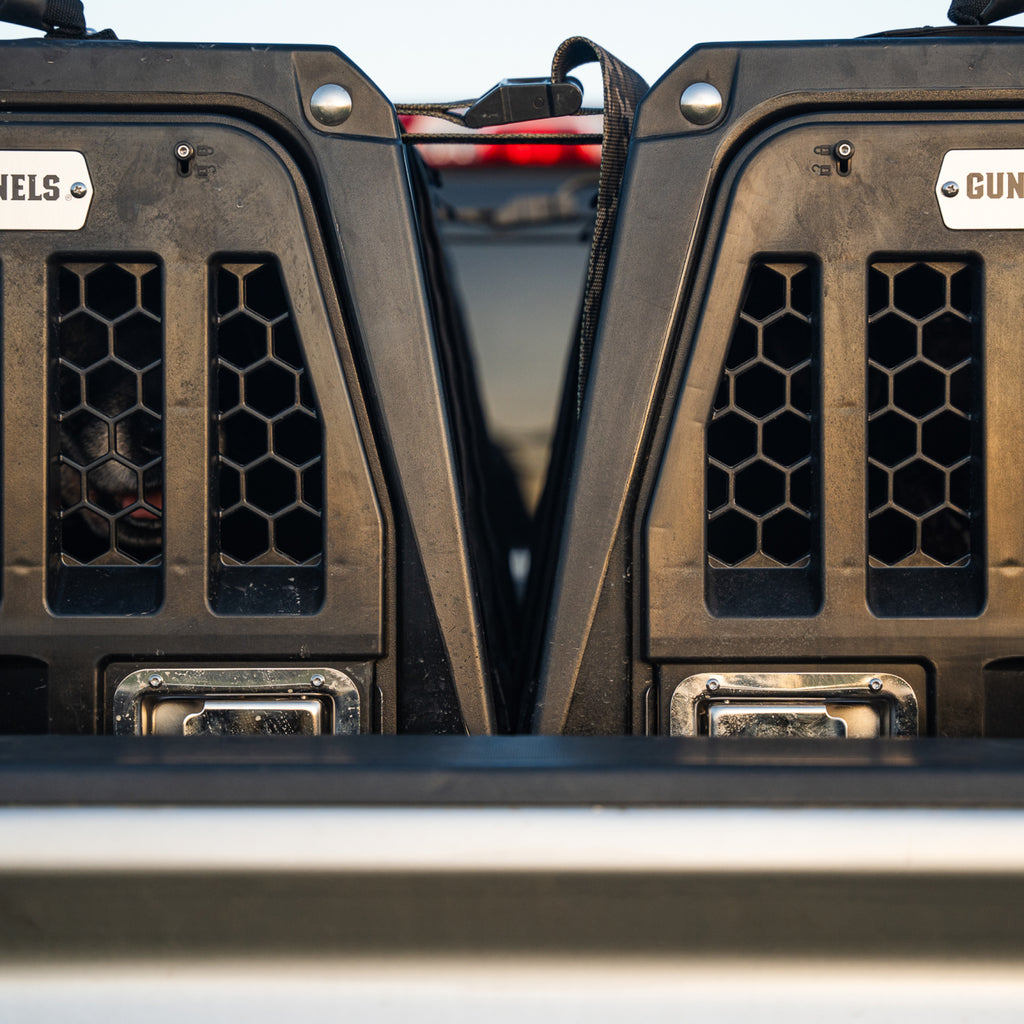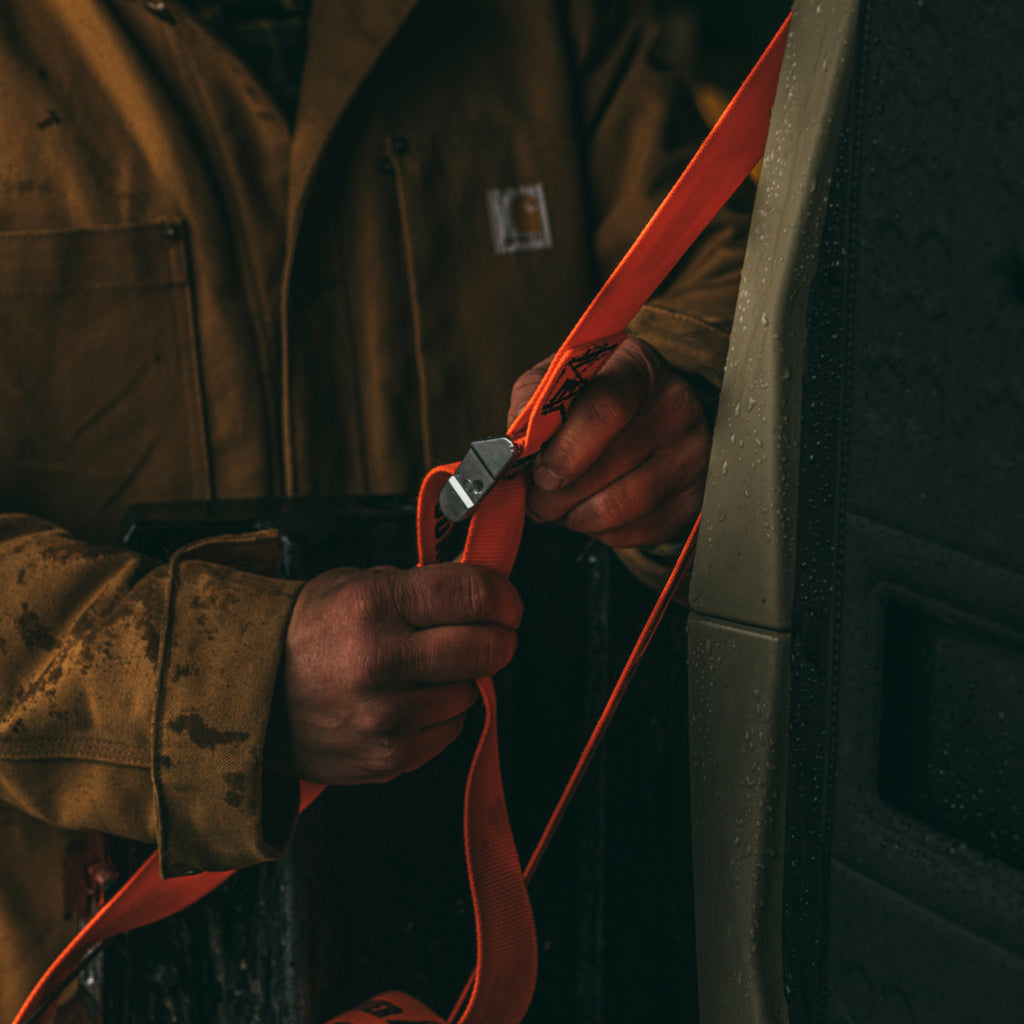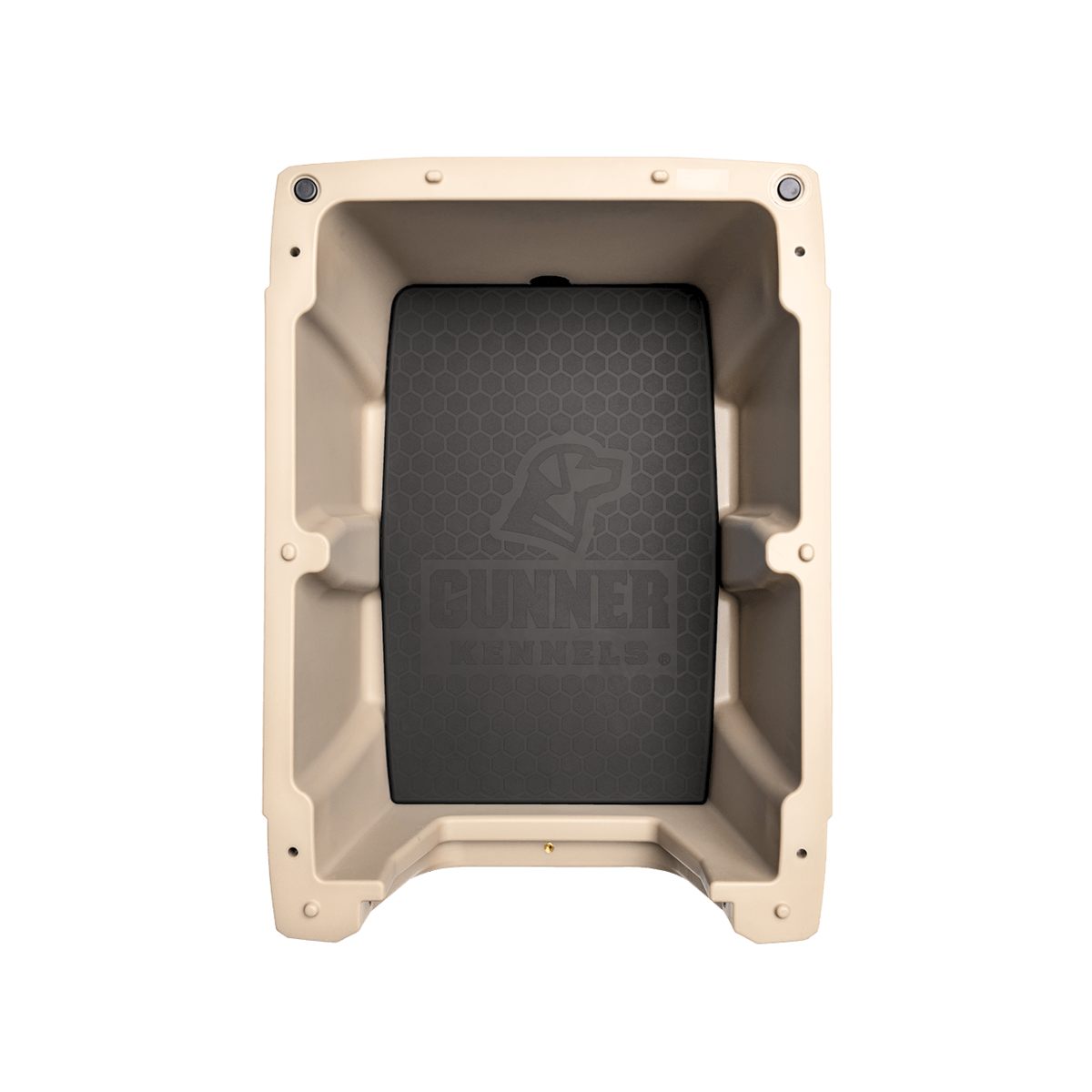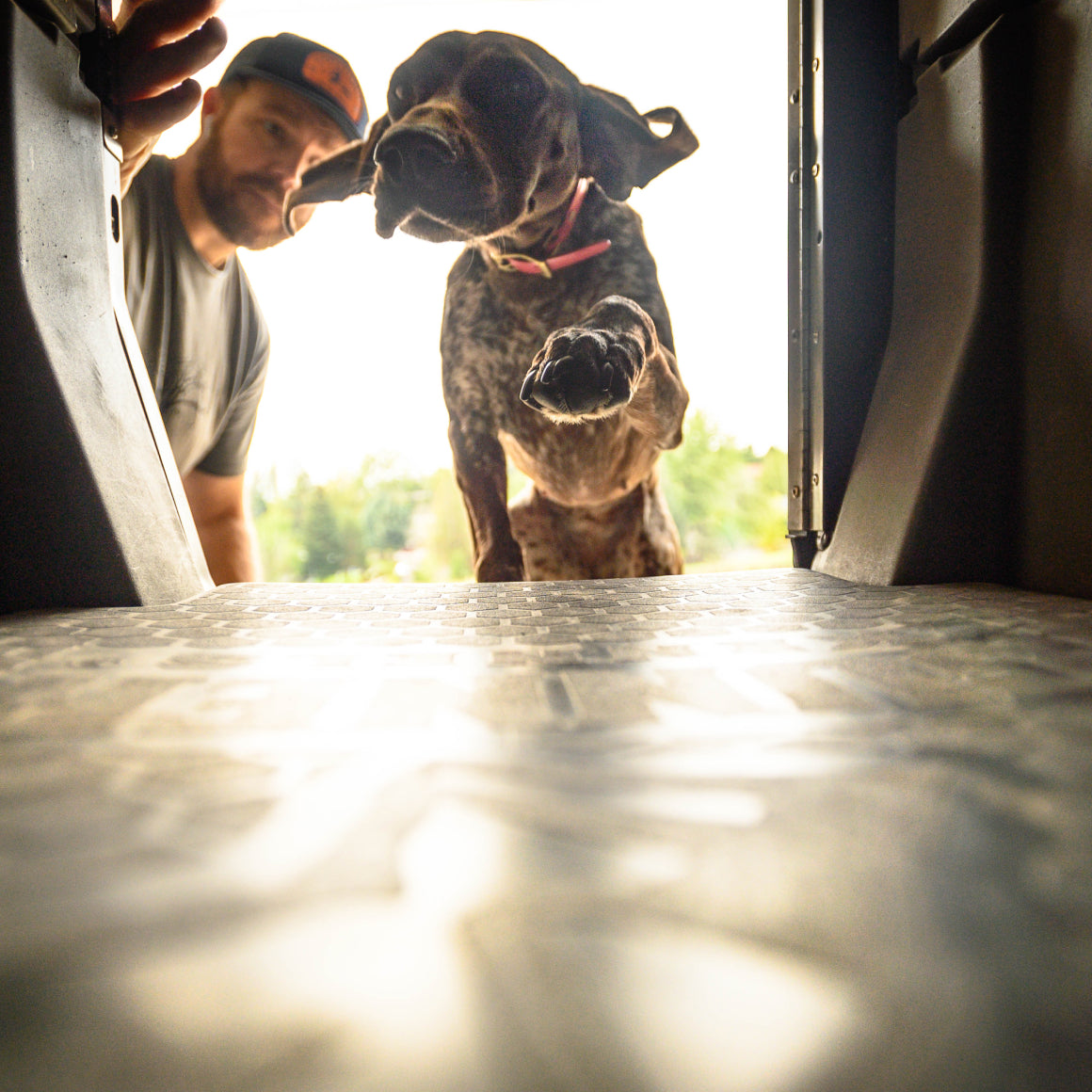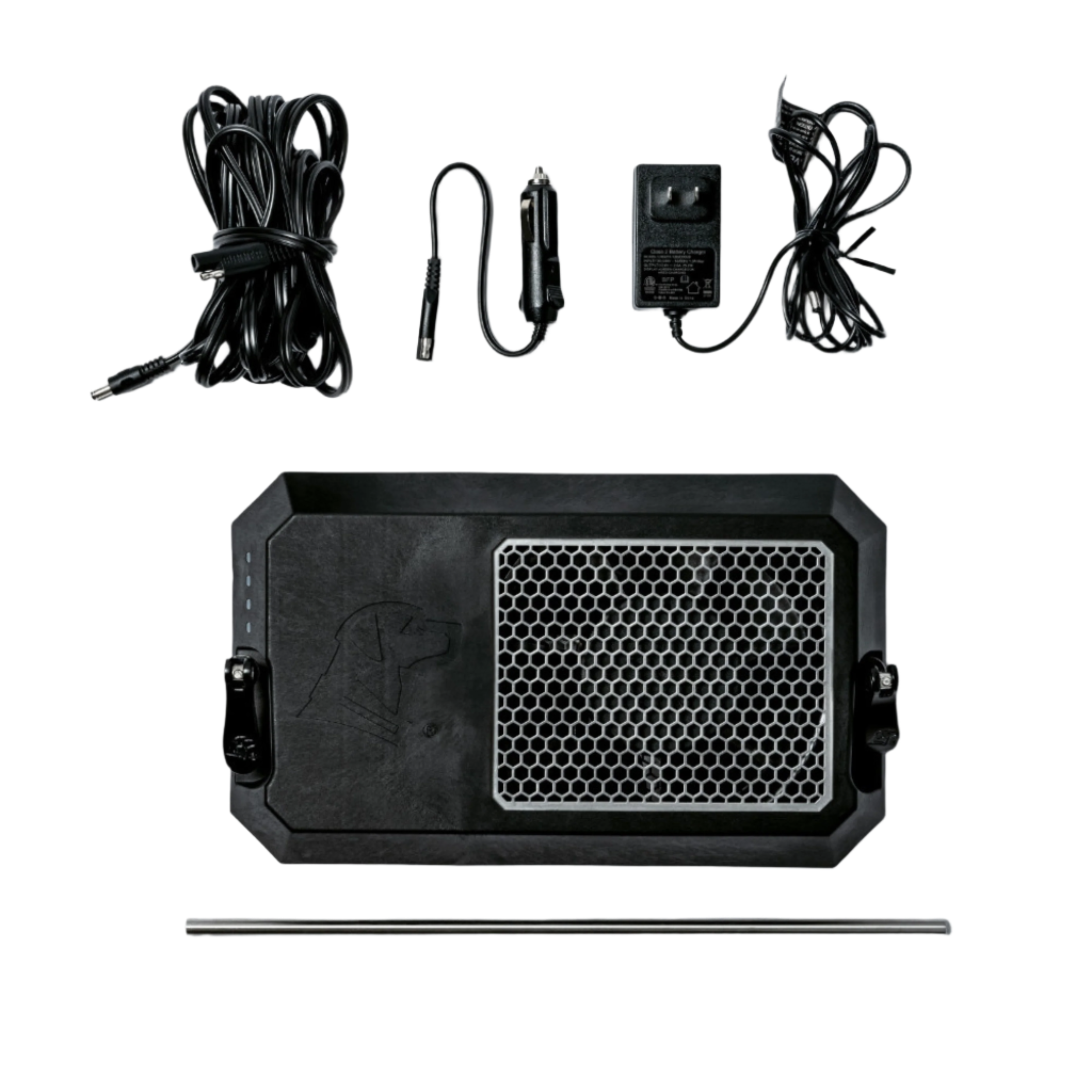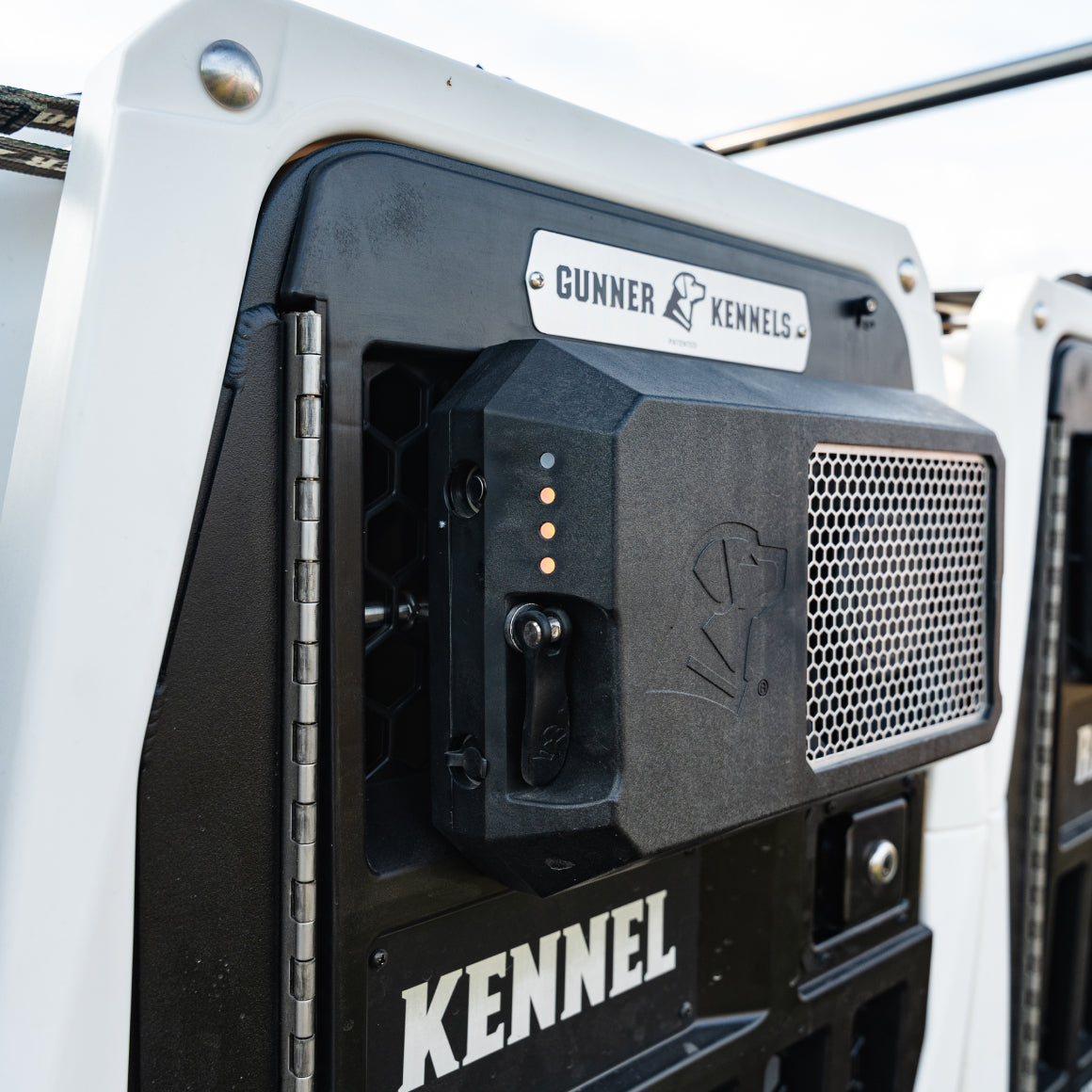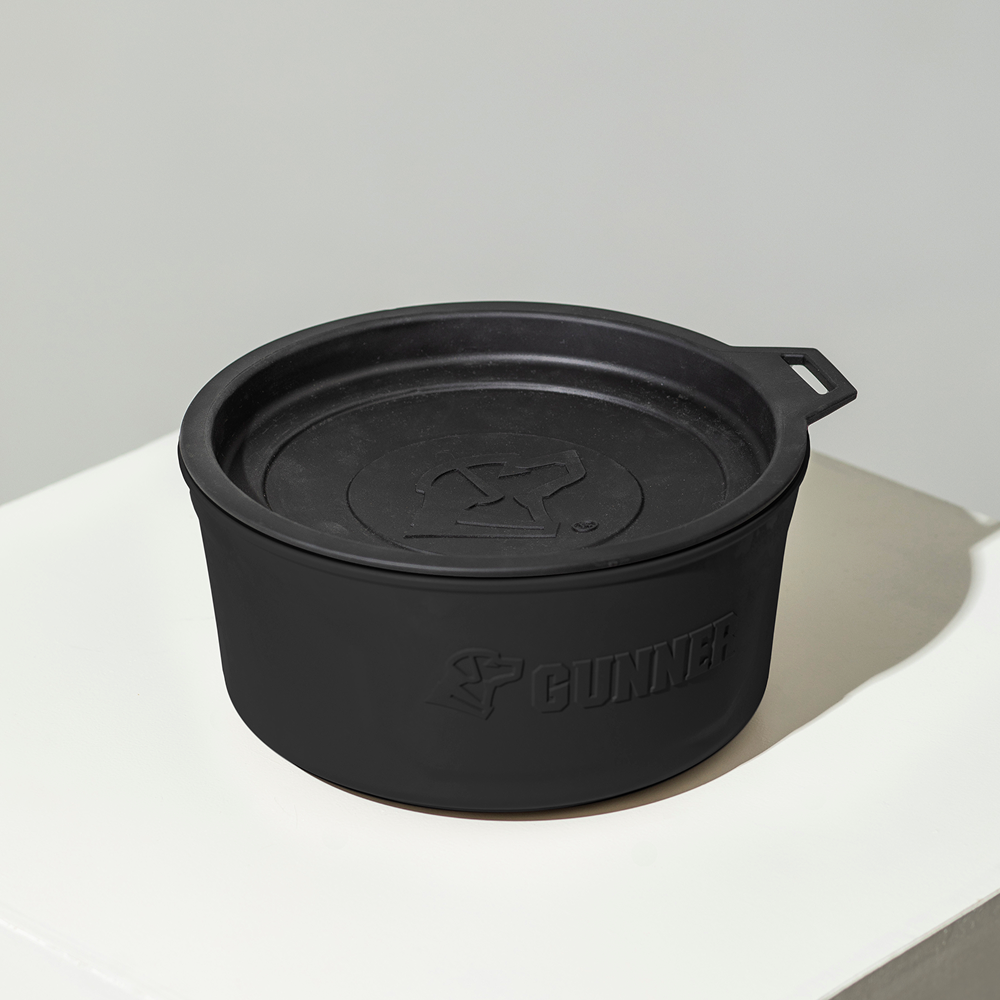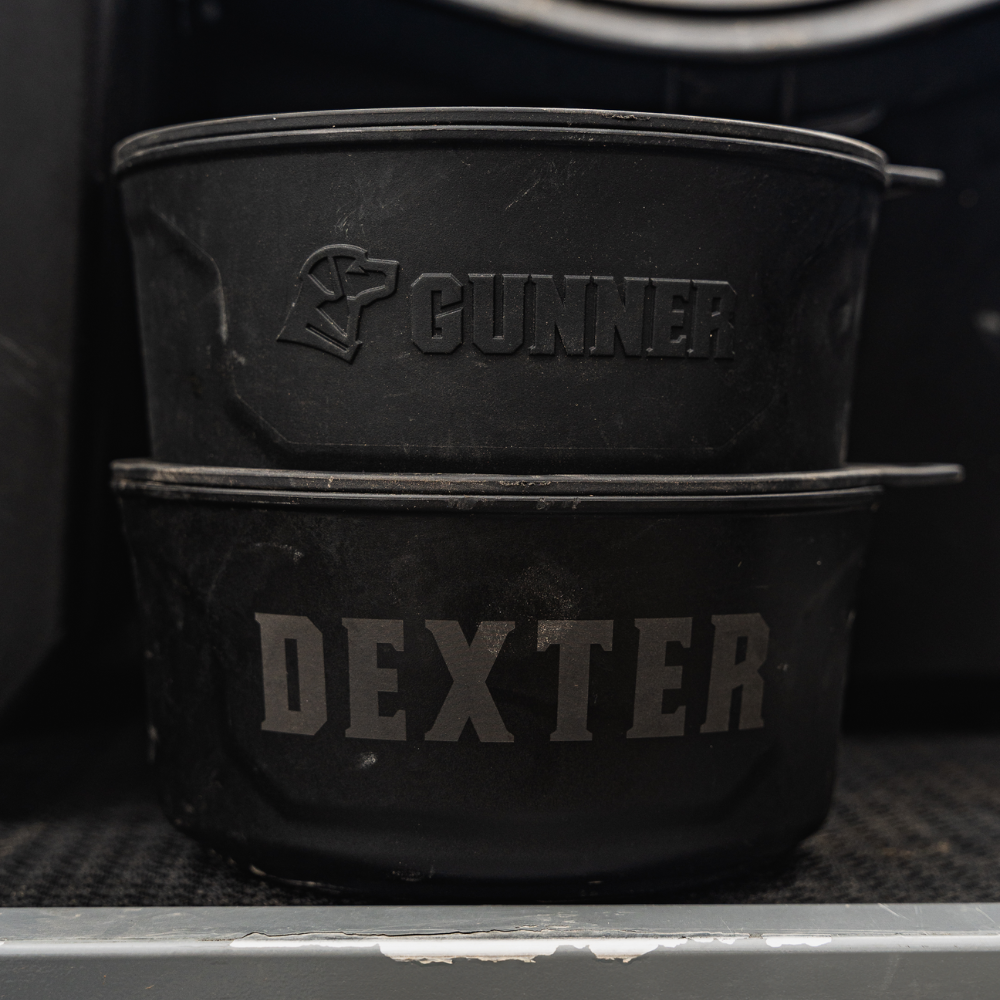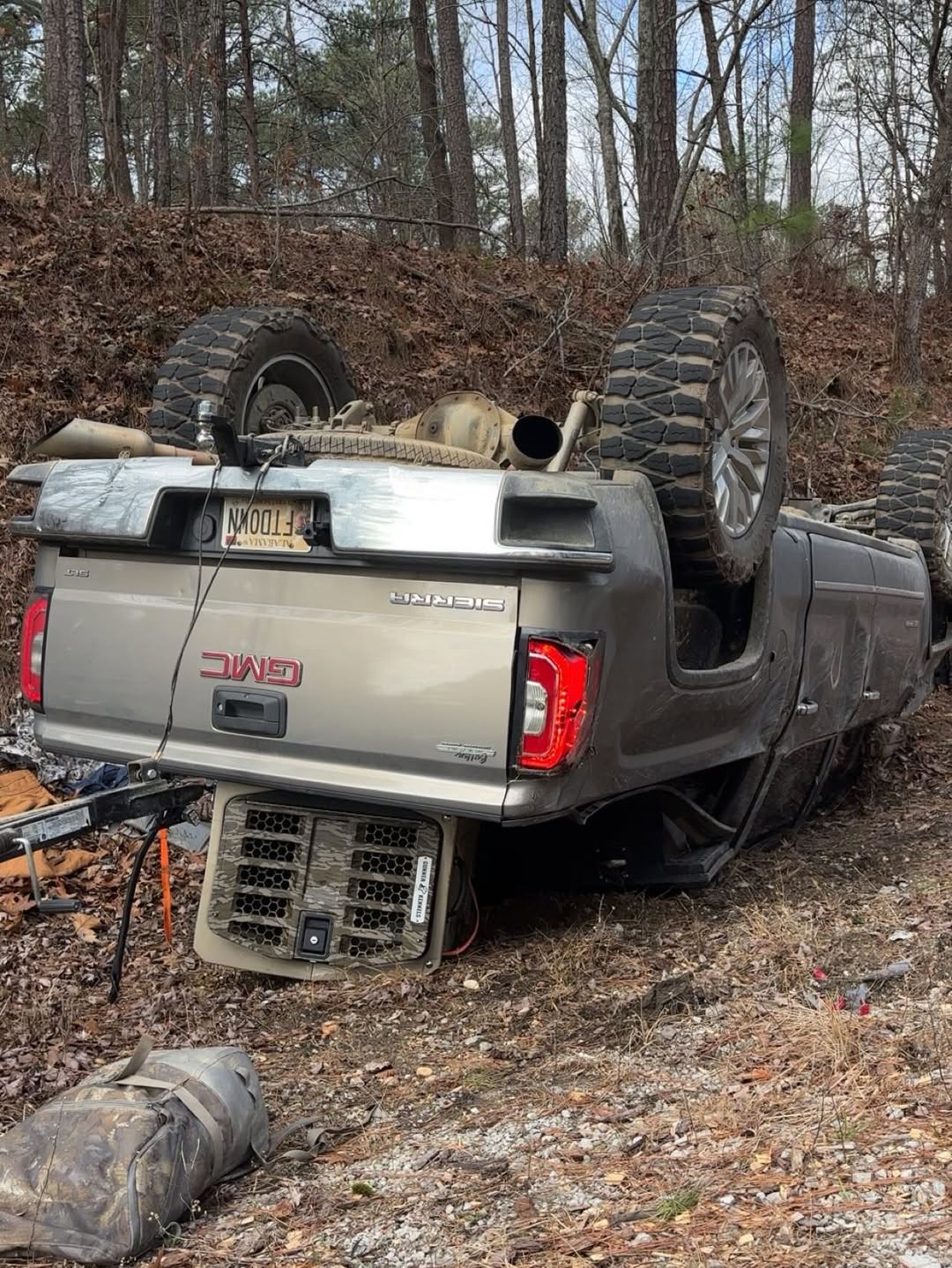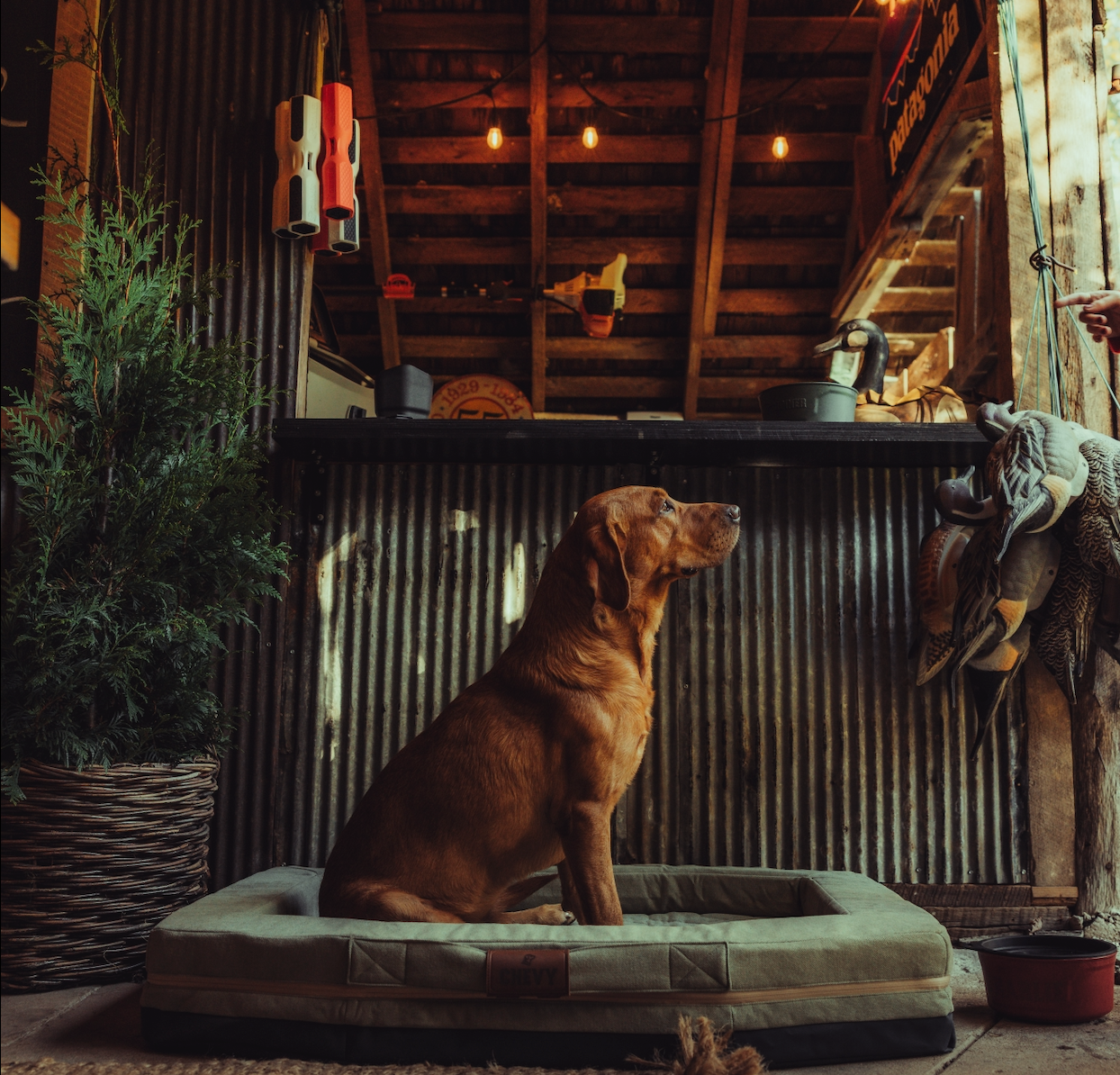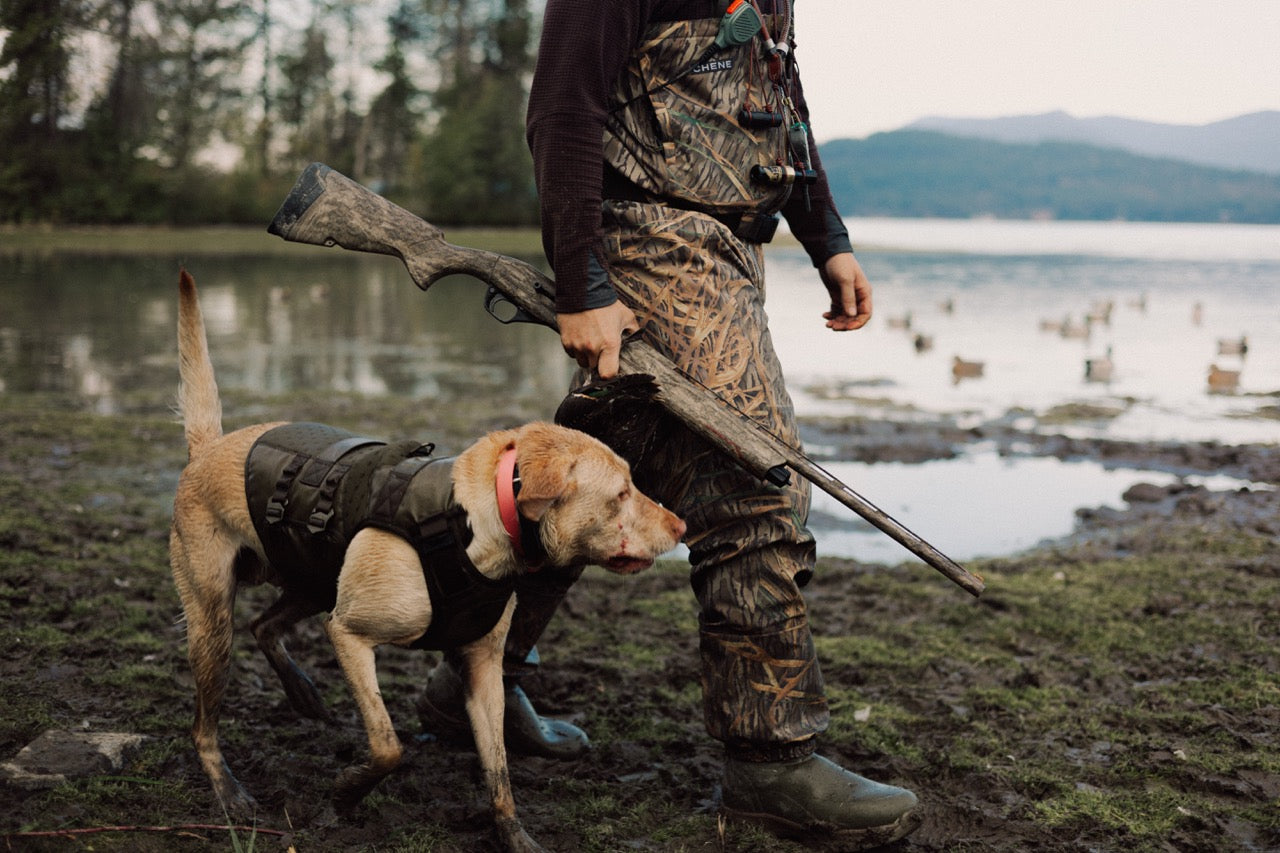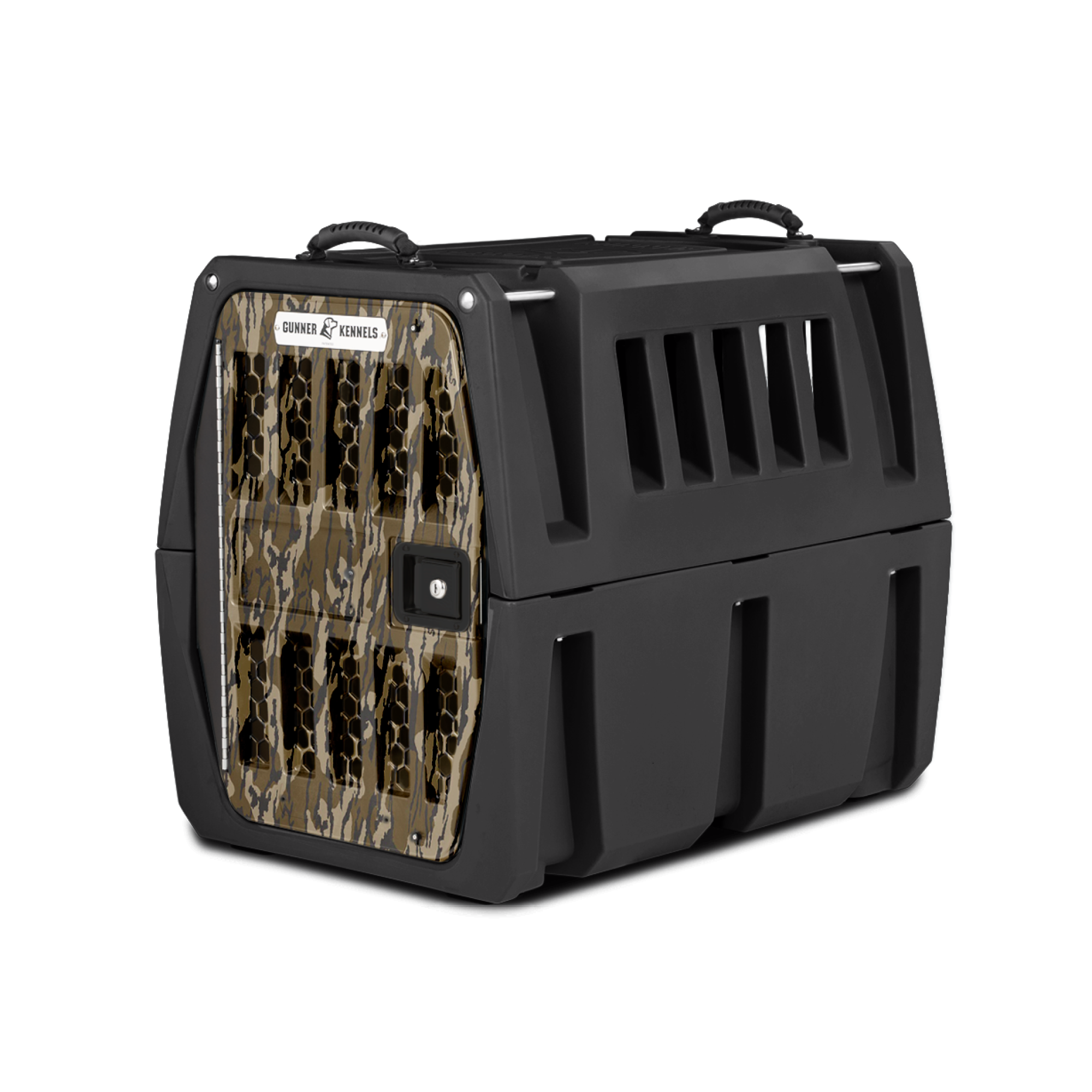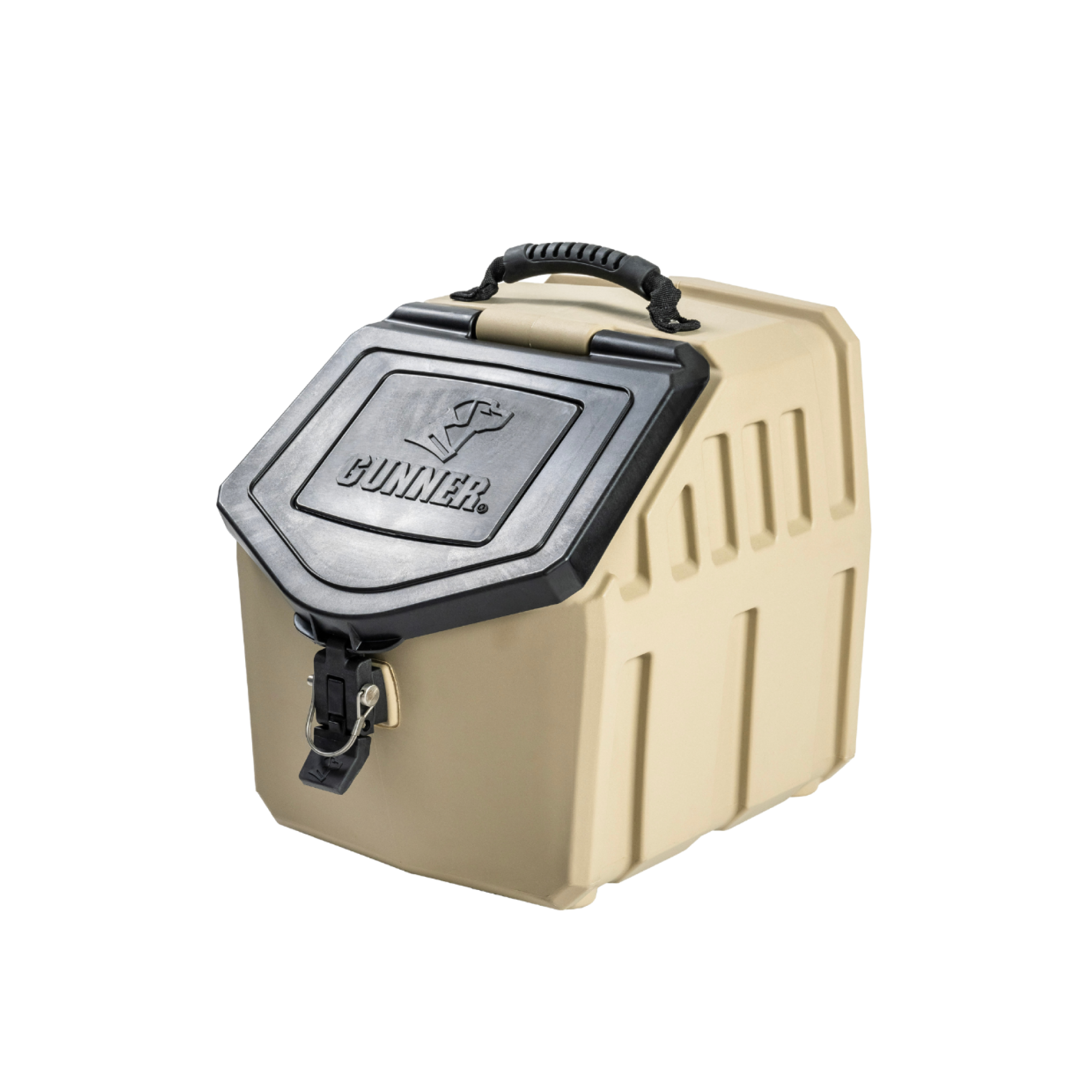Dog anxiety usually results in traumatizing scenarios, stress, and a significant amount of time dedicated to finding a solution for it. Trying different solutions and replacing damaged items can also majorly dent your bank account – if you’re reading this, you probably already know that.
We can’t offer a blanket list of solutions in one post because every dog’s specific situation is different. What we can do is offer personal tips on what you can control when anxiety strikes.
Also, if your dog has travel anxiety or storm phobia specifically, we have advice for calming those problems as well. If your dog has anxiety, this post from Duck’s Unlimited may also be another helpful resource.
TALK TO YOUR VET
Our first and best piece of advice is to talk to your vet about the troubles your dog is having. While this may seem obvious—and you’ve probably already done this—it is really important to address what your dog is experiencing and find a permanent solution.
Let us tell you a quick story. One afternoon our friend went home because she knew a storm was brewing and that her dog would have horrible anxiety. She panicked when she got home as her dog was nowhere to be found. Eventually locating him lying in the bushes hiding, her dog was hemorrhaging due to anxiety from anticipating the weather. She rushed him to the hospital, and we can thankfully say that today he is happy, healthy and—through a lot of work—no longer having severe reactions every time thunder rolls in. It’s been a long road to get there, but with help from their vet and a lot of patience, he’s a changed dog.
Now, on to what you can do to help your dog, once the anxiety episode begins:
WHAT CAN YOU CONTROL?

Make Sure They Know Their Safe Place
If you check out the reviews on our crates, you’ll find a bunch of customers who have dogs with anxiety. Many of these dogs (and owners) named Gunner Kennels as the solution to their problem. Some even claim it has cured the anxiety by allowing their dog to feel protected in a secure den. To us, this makes perfect sense.
Dogs are genetically programmed to “kennel” as den animals. The crate is their home, and acts as the safe space they seek out when they’re tired, upset, or anxious. In our personal experience, and in hearing other anecdotes, we believe that the sturdy construction and material of the G1 can actually make the pet feel more protected, inducing a calm state.
If you don’t think your dog has a go-to “safe place”—one with four walls—then our first suggestion is to crate train them, turning their kennel into a safe haven.
Don’t Leave Him At Home Uncrated/Unattended
If you know your dog has phobias, then you should not be leaving them home alone and uncrated. You can’t always predict when anxiety will hit. Leaving dogs alone and out of their crate is setting them up to try to escape, and do damage to themselves or your home. It’s always better for them to be in their safe place.
Add Some Ambiance To The Den
Whether he’s home alone or has run to his den out of fear, we suggest turning the TV on loud, placing a fan nearby, or turning on calming music for a white noise effect. Putting their favorite toys or blanket inside also makes the environment feel safe and familiar. If it feels right, drape a towel over the kennel windows to enhance the den setting–it really does help in most situations.
What About Some Meds?
Always look to the expert for the best advice. If your dog has had a severe reaction in the past, your vet may recommend a mild sedative. Some people even use Melatonin or Benadryl (fair warning: they’re not meant for dogs and do have the reverse effect on some dogs). Medication will only be a temporary solution–you’ll eventually need to get to the root of your dog´s anxiety for a cure.
Distraction
Depending on the situation, distracting your dog through games and rewards could help. If he’s willing, play with him or keep treats that last longer for anxiety episodes. Frozen peanut butter is a good one (monitor for allergies).
Finally, Just Stay Calm
Dogs feed off of your emotional state. Dogs look to you for reassurance when they’re fearful. Understand that they need calmness from you, and don’t overreact. These are some quick highlights of why we encourage crate training for dog anxiety. Do you agree with us? Let us know what works for you below, or email us here.
*Note: Gunner Kennels does not condone kenneling your dog for extended periods of time in any crate. Dogs were not made for long stretches of daily confinement. Please consider a better option if you are crating your dog each day for multiple hours, especially if they have anxiety.

